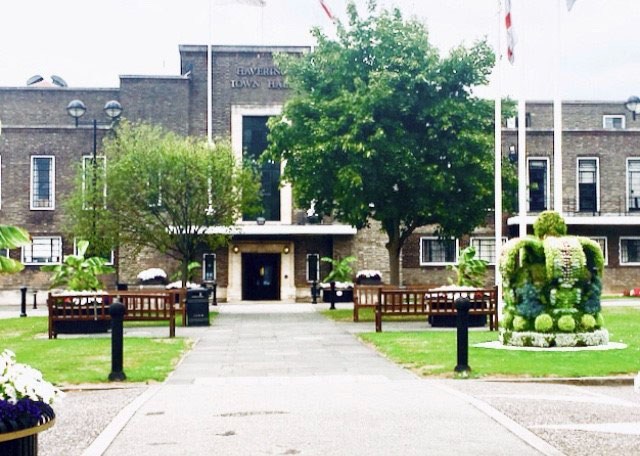GPAS FORM https://forms.office.com/e/8F0qDYkmMM
REFERRAL TO GP REJECTION LETTER Appendix
Hospital Contract 2017
Extract from letter from BMA 19/4/17 re new NHS Hospitals Contract 2017-19
http://bma-mail.org.uk/JVX-4VZUM-8F36IIBL42/cr.aspx
The new changes to the 2017 hospital contract were designed to further reduce inappropriate workload on GP practices, and also improve patient care across the primary/secondary care interface as follows:
1. Hospitals to issue fit notes, covering the full period until the date by which it is anticipated that the patient will have recovered. It is a waste of GP time, and appointments, for patients to be given (for instance) an interim fit note from a hospital discharge for two weeks and to be told to see a GP for a continuation, when it was clear from the outset that they needed two months off work after major surgery – this contract change requires that the patient receives a fit note covering the full period.
2. Hospitals to respond to patient queries for matters relating to their care rather than asking the patient to contact their GP. This would put an end to a culture spanning decades, of patients being told to ‘see your GP’ for a host of issues that should clearly be the responsibility of secondary care – such as queries regarding hospital test results, treatment and investigations, administrative issues regarding follow up, or delays in appointments. The new contract requires that the provider respond to patients (as well as GP queries) ‘promptly and effectively to such questions and that these are publicised using all appropriate means, including in appointment and admission letters and on the provider’s website; and deal with such questions themselves, not by advising the patient to speak to their referrer’.
3. Hospitals must not transfer management under shared care unless with prior agreement with the GP. GPs should not therefore be asked to prescribe specialist medications by virtue of a hospital letter or instruction alone. Any such shared care arrangement must be explicitly agreed first by the GP based on whether they feel competent to do so, and which may include being resourced to do this as a locally commissioned service.
4. Hospital clinic letters to be received by the GP within 10 days from 1 April 2017, and within seven days from 1 April 2018. This will significantly reduce wasted appointments when patients specifically arrange to see a GP following an outpatient clinic appointment, but without us having the relevant clinical information to manage the patient, often requiring the patient to book another appointment.
5. Issuing medication following outpatient attendance at least sufficient to meet the patient’s immediate clinical needs until their GP receives the relevant clinic letter and can prescribe accordingly. This addresses the growing phenomenon of patients turning up at a GP surgery sometimes almost immediately after a hospital appointment for an outpatient initiated prescription, with the GP pressurised to prescribe without relevant clinical information, and with accompanying clinical governance risks.
Remember, these changes are not recommendations but contractual requirements, and therefore if hospitals do not abide by these standards they are in breach of their contract.
Extract from the Delivery Plan to Recover Access to Primary Care May 2023
1. Onward referrals: if a patient has been referred into secondary care and they need another referral, for an immediate or a related need, the secondary care provider should make this for them, rather than sending them back to general practice which causes a further delay before being referred again. This improves patient care, saves time and was the most common request we heard from general practices about bureaucracy.
2. Complete care (fit notes and discharge letters): trusts should ensure that on discharge or after an outpatient appointment, patients receive everything they need, rather than – as too often happens now – leaving patients to return prematurely to their practice, which often does not know what they need. Therefore, where patients need them, fit notes should be issued which include any appropriate information on adjustments that could support and enable returns to employment following this period, avoiding unnecessary return appointments to general practice. Discharge letters should highlight clear actions for general practice (including prescribing medications required). Also, by 30 November 2023, providers of NHS-funded secondary care services should have implemented the capability to issue a fit note electronically. From December this means hospital staff will more easily be able to issue patients with a fit note by text or email alongside other discharge papers, further preventing unnecessary return appointments.
3. Call and recall: for patients under their care, NHS trusts should establish their own call/recall systems for patients for follow-up tests or appointments. This means that patients will have a clear route to contact secondary care and will no
BHRUT Medical Director/LMC/CCG Letter Extracts – 27 October 2015
I would like to share a problem that can be rectified quickly, with measurable benefits for our patients. Some colleagues and their team members, after seeing a patient following referral from a General Practitioner, request that the GP initiates the series of investigations following the consultation. Some initiate the investigations at the Trust and then request that the GP pursue and presumably act upon the results i.e. transferring ownership, responsibility and accountability of their duty of care.
These practices go against GMC and BMA standards & guidance.
The GMC provides guidance in a number of sections that help explain why this matters. I have discussed the issue directly with the GMC (2). Both the Consultants Committee and the General Practitioner Committees of the BMA agree this practice is potentially unsafe, and that the ultimate responsibility for ensuring that results are acted upon, rests with the person requesting the test (3). They have clarified joint guidance on the duty of care. I have highlighted a few points for reference.
• Responsibility for ensuring that results are acted upon rests with the person requesting the test.
• Responsibility can only be delegated to someone else if they accept by prior agreement. Handover of responsibility has to be a joint consensual decision between hospital team and GP.
• If the GP hasn’t accepted that role, the person requesting the test must retain responsibility.
References:
1. Institute of Medicine. Crossing the Quality Chasm 2001
2. Good medical practise, section on Continuity and coordination of care. Expanded in Delegation and referral
(2013) explanatory guidance. In particular, paragraph 2
3. http://bma.org.uk/practical-support-at-work/gp-practices/service-provision/duty-of-care-topatients-regarding-test-results
GP Self Support Group
This Group meets on the last Wednesday of the month at 6.30pm. All Group meetings are virtual.
Come and Join the Group if you wish to discuss something which you may be concerned about, in full confidential setting. Telephone LMC office for more information or speak to Madhu Pathak:
Barking, Dagenham & Havering Local Medical Committee
Imperial Offices, 2-4 Eastern Road, Romford RM1 3PJ
T: 07908 584788 | E: lmc.bdh@nhs.net
Madhu Pathak 07950638694
Please also find the following links of various support organisations for Doctors.
https://www.practitionerhealth.nhs.uk/
Email: prac.health@nhs.net
Tel: 0300 030 3300
Text: NHSPH to 85258
The BMA provide a confidential counselling service for ALL doctors and medical students:
https://bma.healthassuredeap.co.uk/contact-us/
Tel: 0330 123 1245 (24 hours a day, seven days a week)
The BMA also maintain a directory of further support resources:
https://www.bma.org.uk/advice-and-support/your-wellbeing/wellbeing-support-services/counselling-and-peer-support-services
Support for Doctors
GP Wellbeing (rcgp.org.uk)
Further sources of support for GPs can be found here:
http://www.rcgp.org.uk/training-exams/practice/gp-wellbeing/wellbeing-help.aspx
https://www.bma.org.uk/advice-and-support/your-wellbeing?gclid=EAIaIQobChMI3ZCKj-2R7gIVxOvtCh2f_QDiEAAYASAAEgKHgvD_BwE
http://www.rcgp.org.uk/membership/membership-benefits/gp-wellbeing.aspx or
http://gphealth.nhs.uk/
http://www.rcgp.org.uk/training-exams/practice/gp-wellbeing/wellbeing-help.aspxour Content Goes Here

